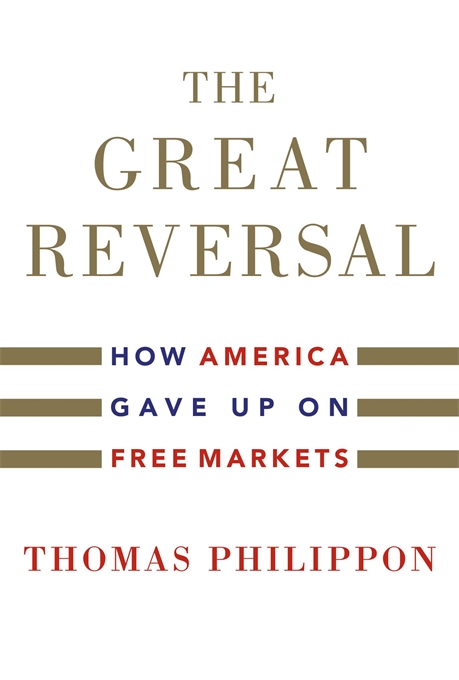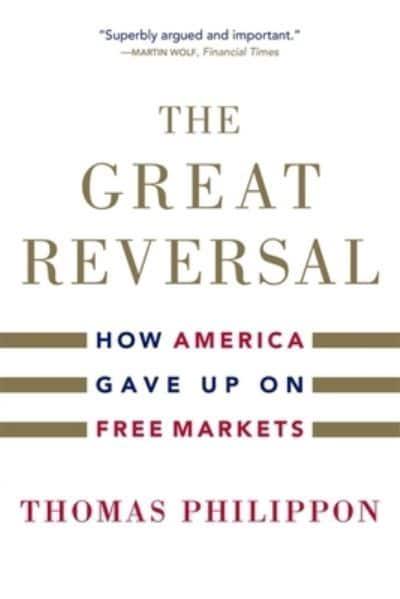The great reversal
how America gave up on free markets
- ISBN: 9780674237544
- Editorial: Harvard University Press
- Fecha de la edición: 2019
- Lugar de la edición: Cambridge (MSS). Estados Unidos de Norteamérica
- Encuadernación: Cartoné
- Medidas: 23 cm
- Nº Pág.: 343
- Idiomas: Inglés

In this much-anticipated book, a leading economist argues that many key problems of the American economy are due not to the flaws of capitalism or the inevitabilities of globalization but to the concentration of corporate power. By lobbying against competition, the biggest firms drive profits higher while depressing wages and limiting opportunities for investment, innovation, and growth.
Why are cell-phone plans so much more expensive in the United States than in Europe? It seems a simple question. But the search for an answer took Thomas Philippon on an unexpected journey through some of the most complex and hotly debated issues in modern economics. Ultimately he reached his surprising conclusion: American markets, once a model for the world, are giving up on healthy competition. Sector after economic sector is more concentrated than it was twenty years ago, dominated by fewer and bigger players who lobby politicians aggressively to protect and expand their profit margins. Across the country, this drives up prices while driving down investment, productivity, growth, and wages, resulting in more inequality. Meanwhile, Europe—long dismissed for competitive sclerosis and weak antitrust—is beating America at its own game.
Philippon, one of the world’s leading economists, did not expect these conclusions in the age of Silicon Valley start-ups and millennial millionaires. But the data from his cutting-edge research proved undeniable. In this compelling tale of economic detective work, we follow him as he works out the basic facts and consequences of industry concentration in the U.S. and Europe, shows how lobbying and campaign contributions have defanged antitrust regulators, and considers what all this means for free trade, technology, and innovation. For the sake of ordinary Americans, he concludes, government needs to return to what it once did best: keeping the playing field level for competition. It’s time to make American markets great—and free—again.
Introduction
I. The Rise of Market Power in the United States
1. Why Economists Like Competition…and Why You Should Too
2. Bad Concentration, Good Concentration
3. The Rise in Market Power
4. The Decline of Investment and Productivity
5. The Failure of Free Entry
II. The European Experience
6. Meanwhile, in Europe
7. Are U.S. Prices Too High?
8. How European Markets Became Free
III. Political Economy
9. Lobbying
10. Money and Politics
IV. An In-Depth Look at Some Industries
11. Why Are Bankers Paid So Much?
12. American Health Care: A Self-Made Disaster
13. Looking at the Stars: Are the Top Firms Really Different?
14. To Regulate or Not to Regulate, That Is the Question
15. Monopsony Power and Inequality
Conclusion







